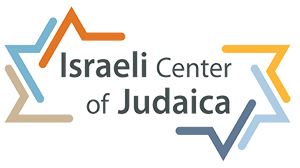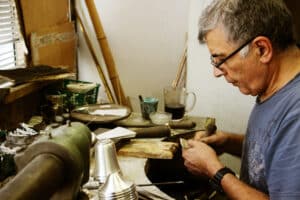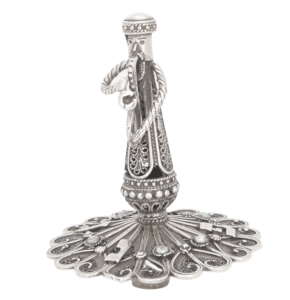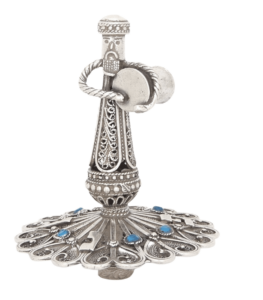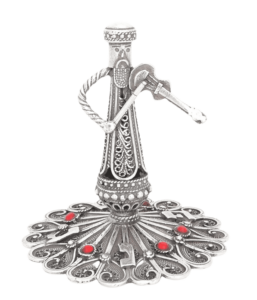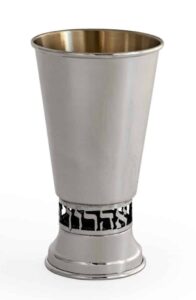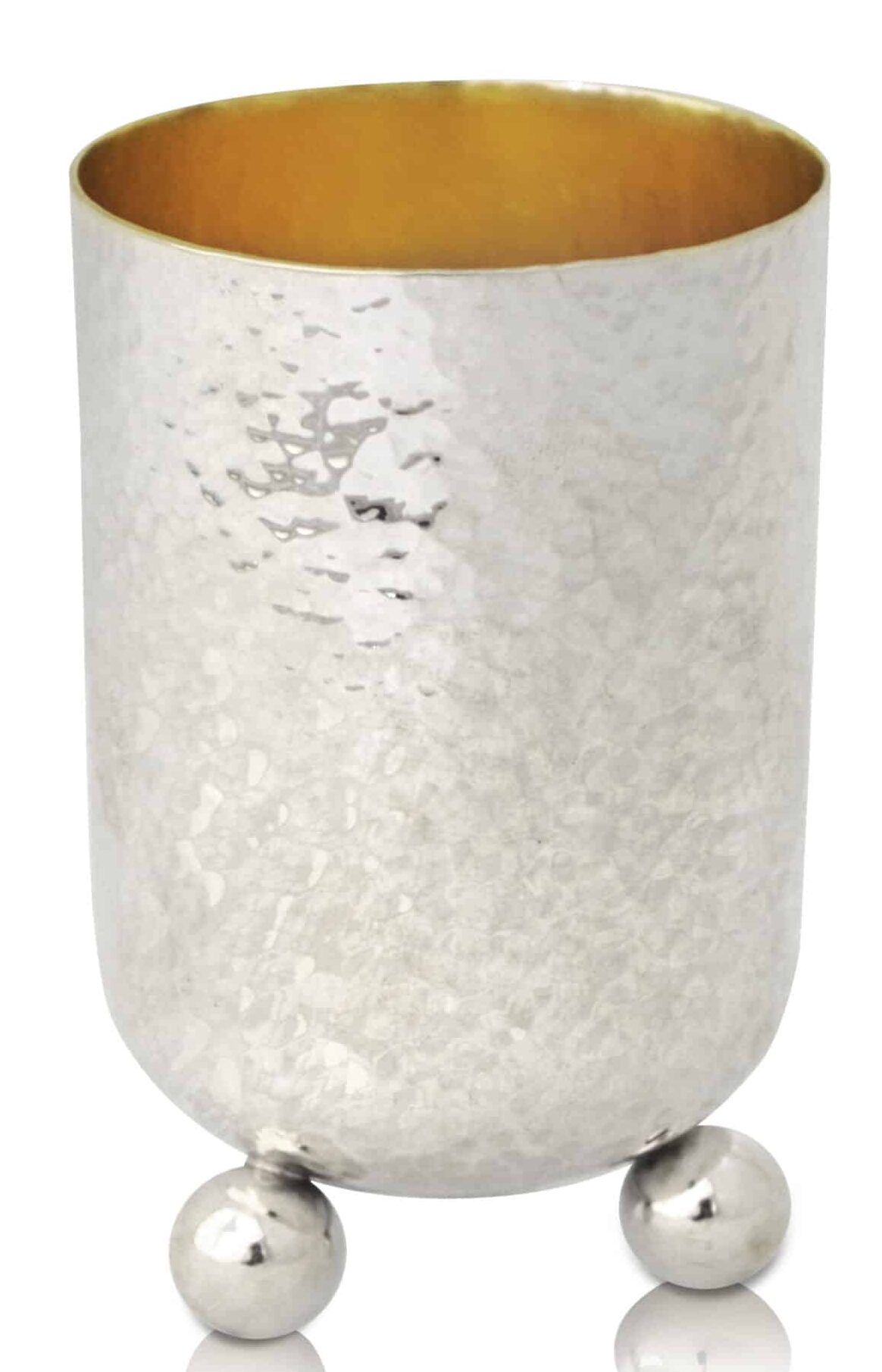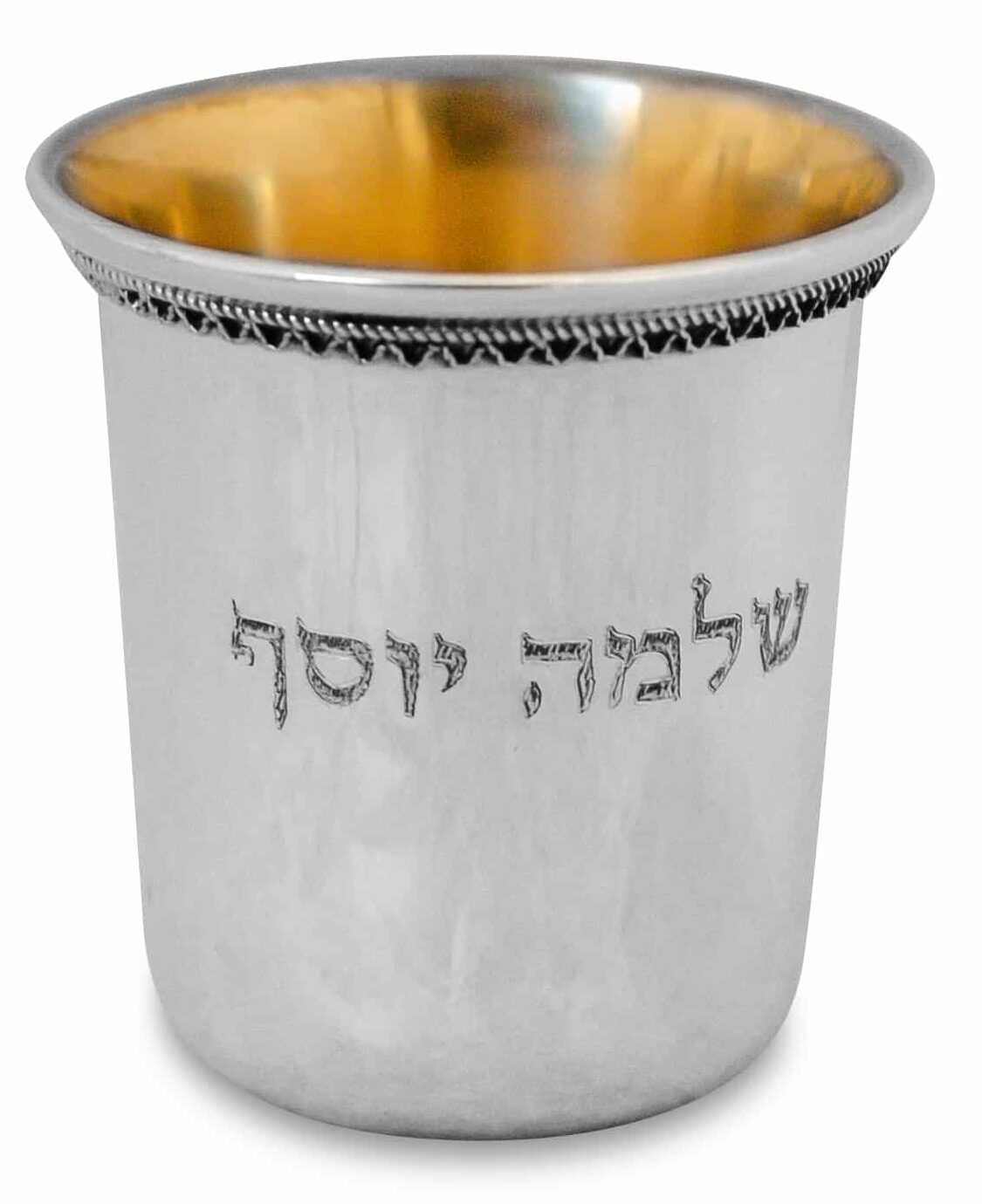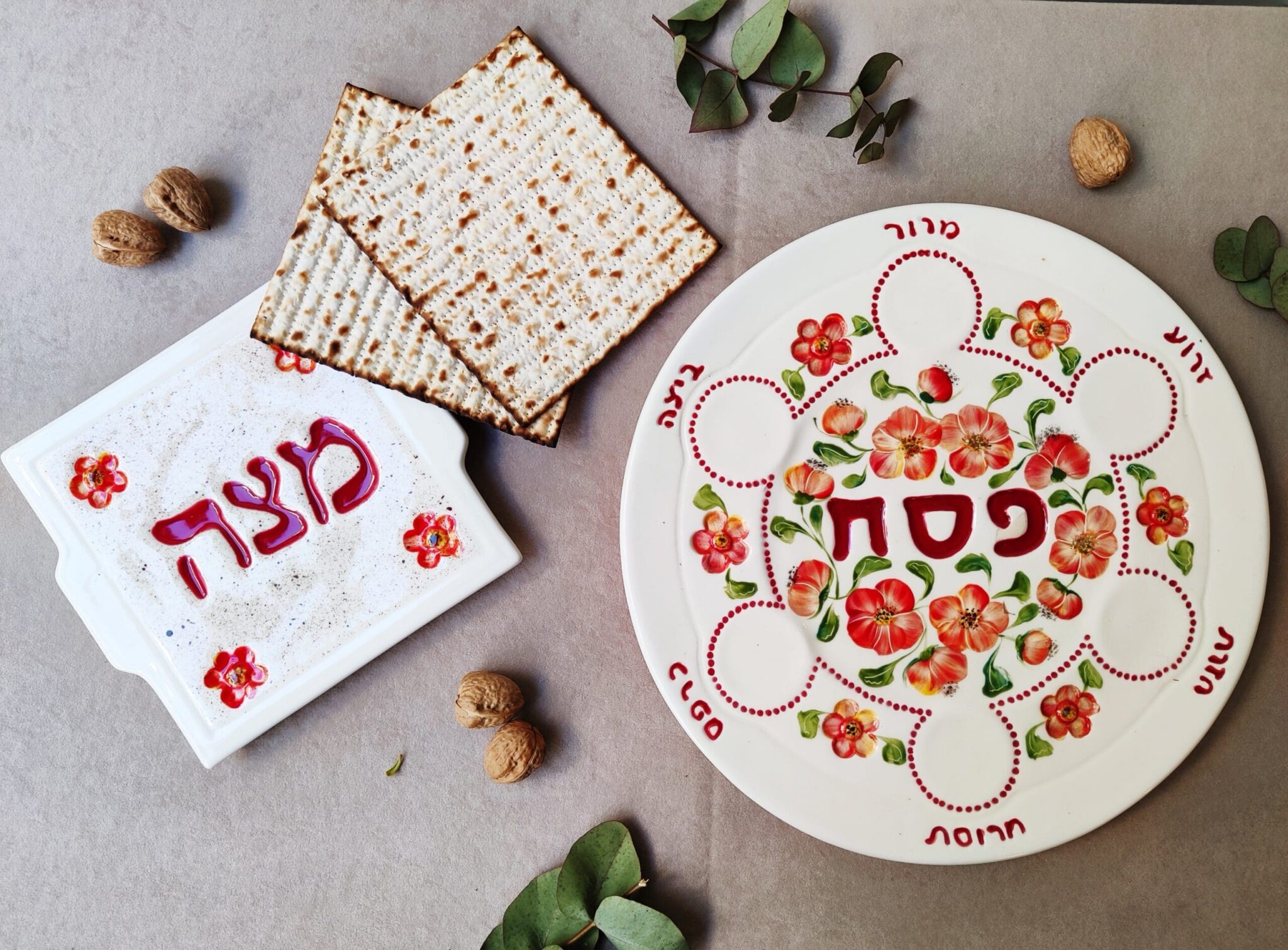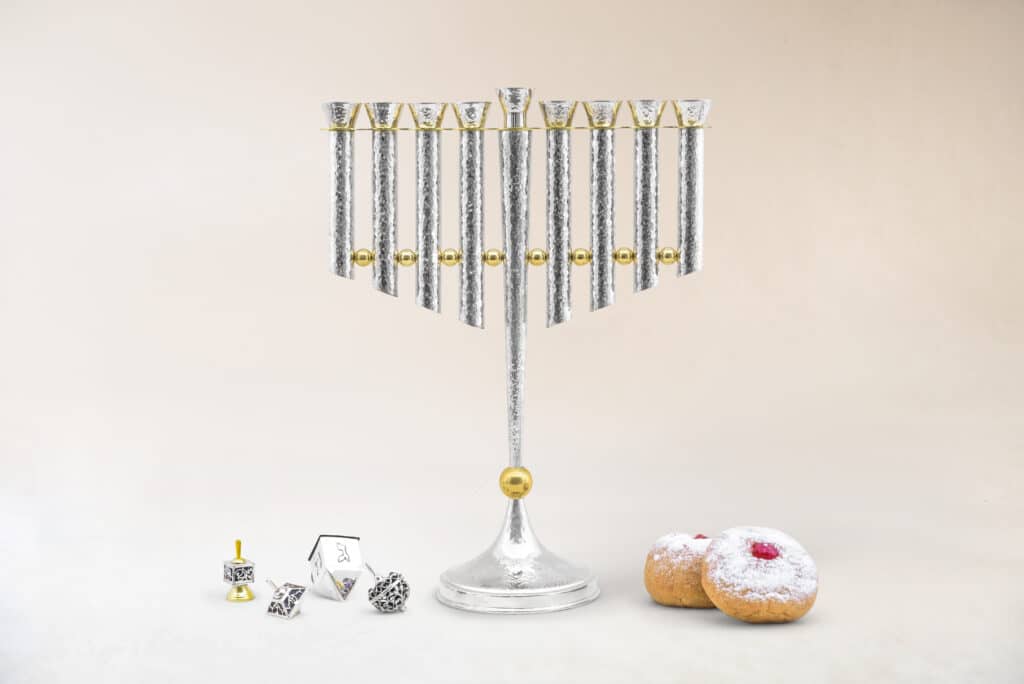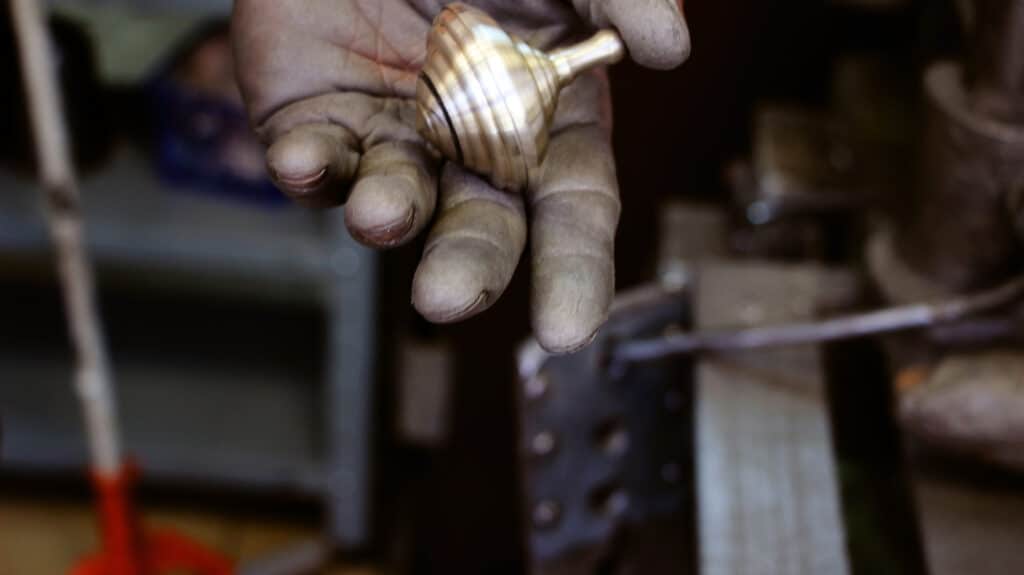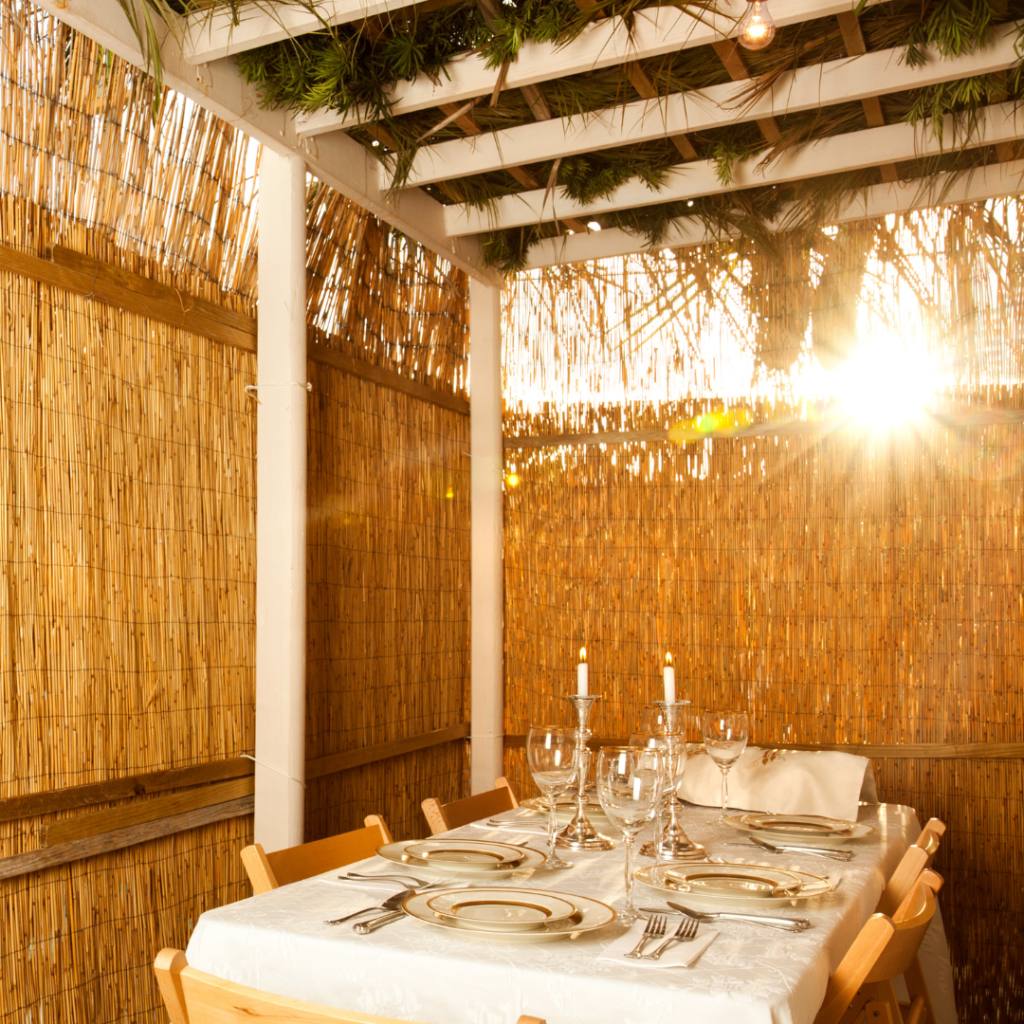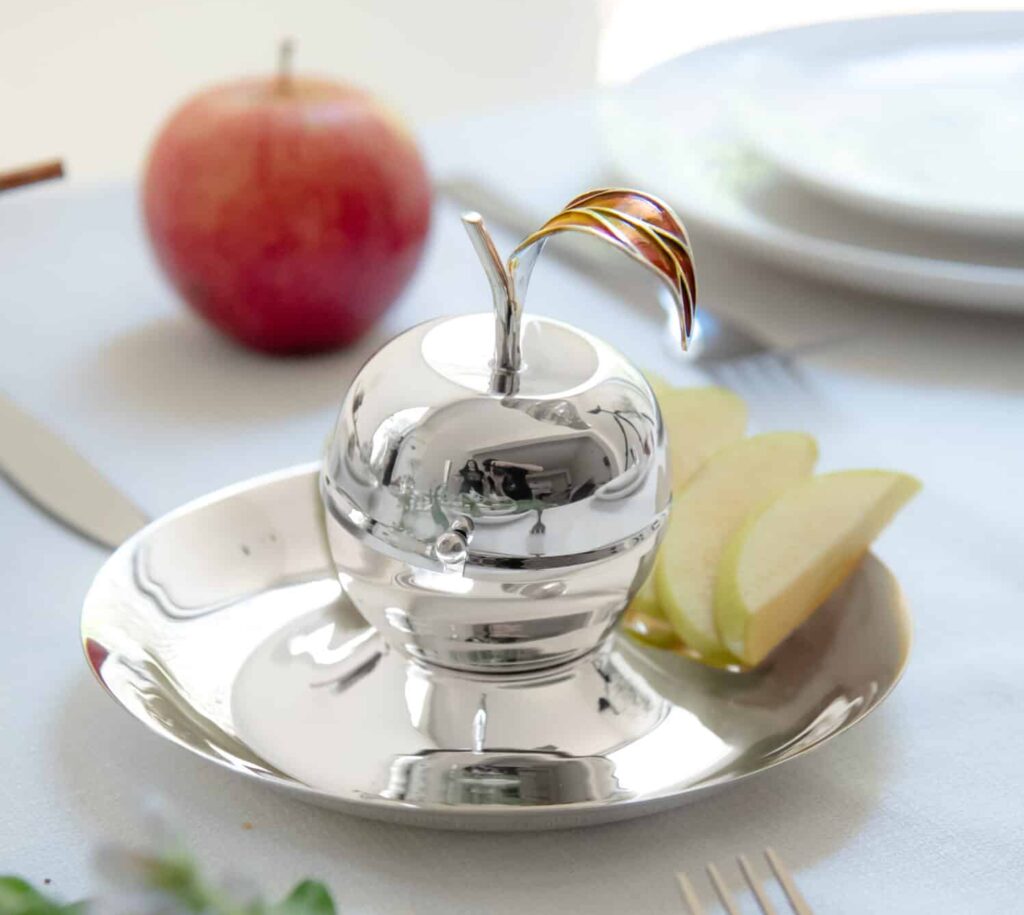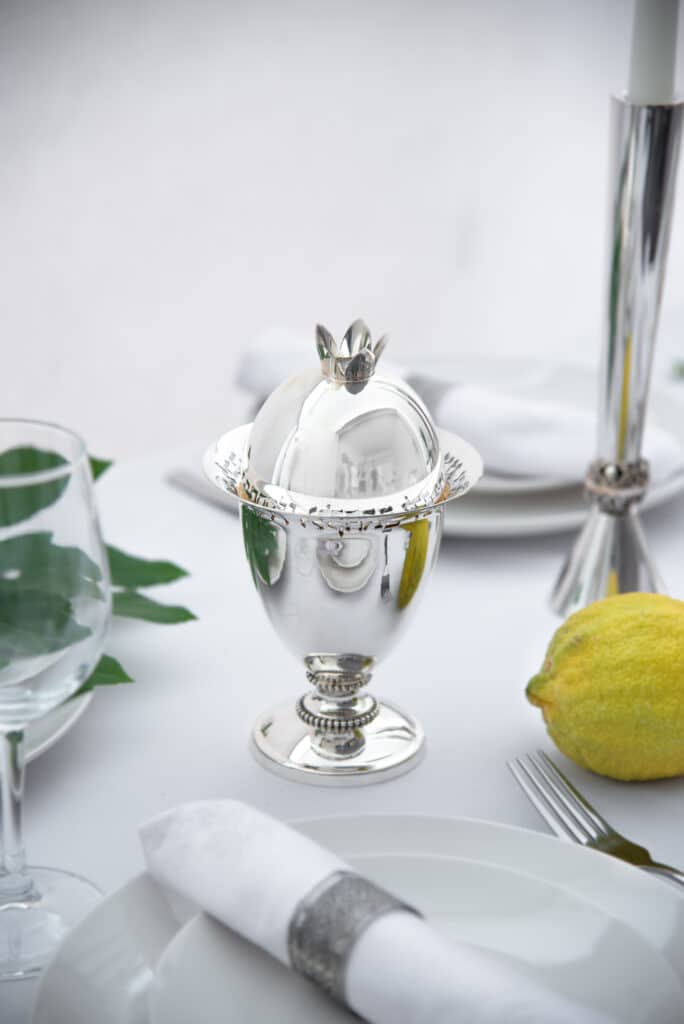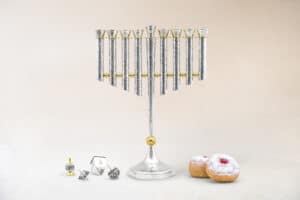
The Jewish calendar contains several holidays, special days, and feast days. Sometimes even Jews can get confused about which holiday comes next, or what its actual significance is. It doesn’t help that the official holiday dates are calculated according to the lunar calendar and not the official Gregorian calendar that most of the world uses. Events like Pesach, Rosh HaShanah and Yom Kippur fall on different days every year. When you live in Israel, there are also secular holidays like Independence Day and Memorial Days.
This blog post will focus on the main Jewish holidays that are celebrated with family dinners, and fun holidays like Purim and Hanukkah. We’ll take a look at the origins of the holidays, some of their best-known traditions, and offer some practical suggestions for celebrating them. We’ll also feature some special gift suggestions for each of the main holidays.
The Top 5 Jewish Holidays
Traditional Jewish holidays like Pesach and Hanukkah sometimes coincide (more or less) with traditional Christian holidays like Easter and Christmas. If you’re living in countries that have public holidays, you can sometimes get lucky and celebrate a Jewish holiday on public holidays. There’s usually already a festive feel, particularly around Hanukkah, and it adds to the overall vibe.
Everybody has their own favorite holiday, but most Jews in English speaking and European countries only really celebrate the top 5 Jewish holidays. Even in Israel, much of the non-religious population basically ignores many of the special days on the Jewish calendar.
To view all of our unique Jewish holiday products, please click here
The 5 most familiar Jewish Holidays
- Pesach
- Shavuot
- Rosh Hashanah
- Sukkot
- Hanukkah
🥳Purim counts as a special bonus holiday alongside the Top 5!🥳
One thing all the favorite Jewish holidays have in common is good food! Jewish cuisine is seriously underrated in the wider world, but anybody who’s been to a traditional seder, eaten kreplach or compote at Sukkot, or tried Haman’s ears at Purim already has an insight into the delicious surprises and amazing varieties of traditional Jewish cooking!
Passover - Celebrating the Exodus of the Israelites
Hebrew Name: חַג הַפֶּסַח
Passover 2022: 15th Nisan – April 15th
What is Passover?
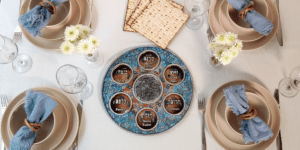
The seder dinner is possibly the most widely observed Jewish ritual. It’s a real family event and a traditional dinner involves reading from the Haggadah, drinking four cups of blessed wine, and eating the ritual foods while asking the four questions. An old fashioned seder can be a lot of fun for kids, and is a great way to teach them some important Jewish history and tradition.
What is the Meaning of the Passover Meal?
The Passover seder is one of the biggest and most important meals of the year. It’s a special opportunity to bring out your best silverware and dishes and create a truly beautiful table. It’s also the one week of the year when you’ll bring out your seder plates and matzos plates to hold the karpas, maror, matzoh and other traditional Pesach foods.
Recommended Passover Gifts
Recommended Judaica gifts for Passover 2022 include:
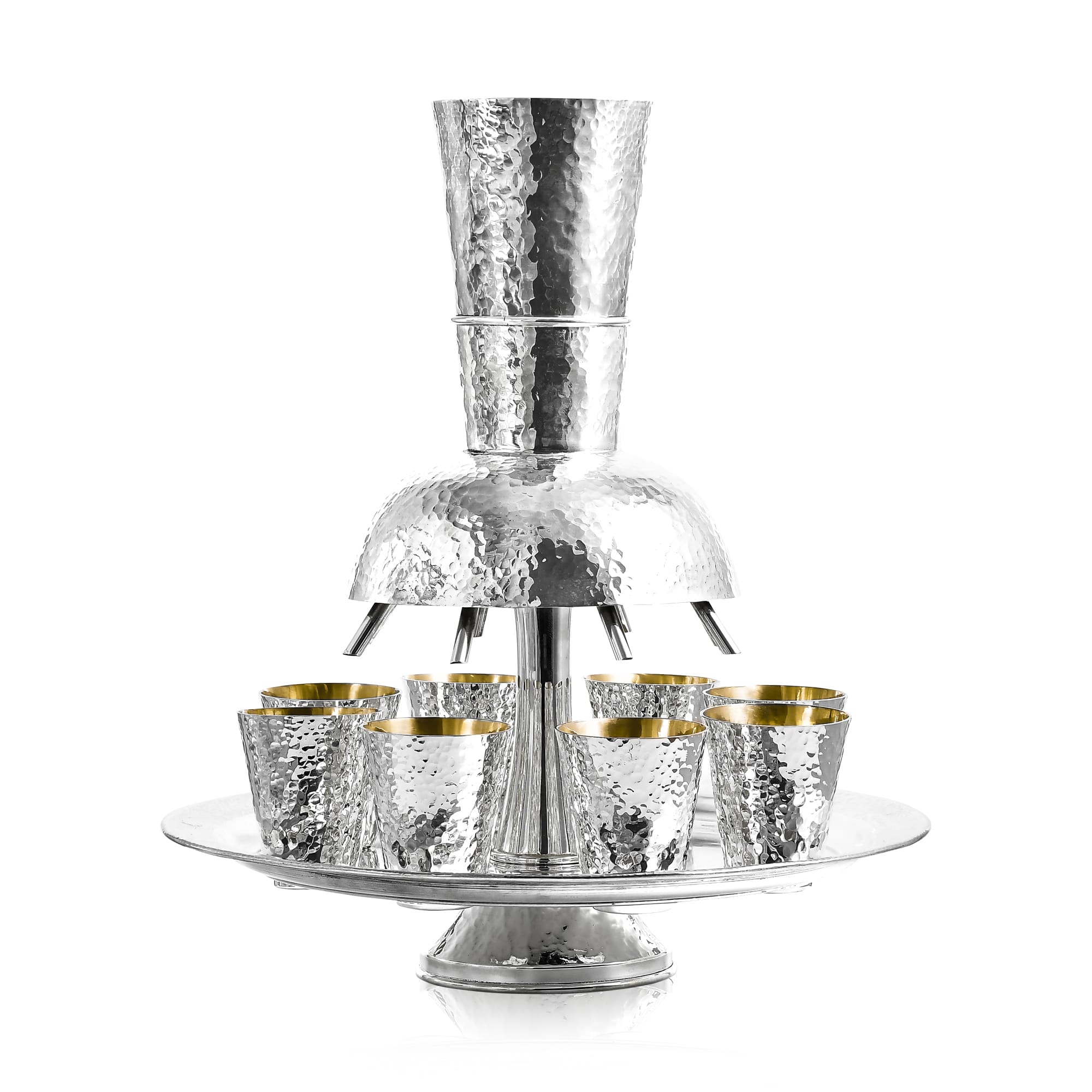
If you’re attending a seder dinner this year, a gift of Passover Judaica is a wonderful way to thank your hosts and show your love and appreciation. Every Jewish home should have a Seder plate or so me fine candlesticks.
For our entire Passover products collection, please click here
Shavuot
Hebrew Name: שָׁבוּעוֹת
Shavuot 2022: 6th Sivan – June 4th
What is the meaning of Shavuot?
Shavuot literally means ‘weeks’ in Hebrew. The holiday marks the end of the traditional Jewish ritual of the Counting of the Omer. Shavuot celebrates the giving of the Torah after the exodus from Egypt, but also has wider significance as a harvest festival. It’s likely that the onset of the grain and wheat harvest season was celebrated at this time by our earliest ancestors. The modern Shavuot holiday is a one day public holiday in Israel, but is a living link to that ancient past.
The religious significance of the Torah aside, Shavuot celebrates the bounty of nature. Depending on the lunar calendar, it falls between the middle of May and the middle of June each year and is a warm and sunny holiday. Shavuot is traditionally marked by decorating homes and synagogues with greenery. Flowers, plants and leafy branches are all acceptable, and a gift of flowers is especially welcome during Shavuot.
What Food Do You Eat On Shavuot?
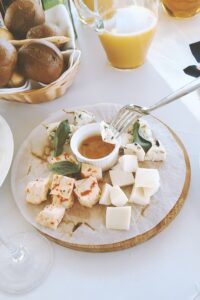
Recommended Shavuot Gifts
Recommended Judaica gifts for Shavuot 2022 include:
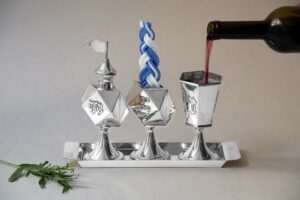
Sukkot is very much a harvest festival and is also celebrated with dairy products. If you’re looking for an imaginative and unusual gift for a Sukkot host, we recommend an Israeli art print – or even an original work of art – with a beautiful landscape or other natural theme.
Rosh Hashanah
Hebrew Name: רֹאשׁ הַשָּׁנָה
Rosh Hashanah 2022: 1st Tishrei – September 25th
What Does Rosh Hashanah Mean?
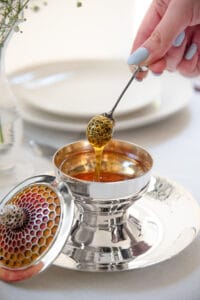
Rosh HaShanah is usually a quiet family event and a pleasant start to the autumn season. It’s also the first of the High Holy Days and can include ritual blowing of the shofar – sometimes up to 100 times a day. Most US Jews and Israelis celebrate Rosh HaShanah with family dinners. In Israel, Rosh HaShanah often arrives with the cooler weather. People are relieved that the hot summer extremes have finally passed and really welcome the comfortable autumn temperatures.
What food do you eat on Rosh Hashanah?
Traditional foods include apples and honey (to wish for a sweet new year to follow). Dates, pomegranates and other harvest foods are usually in season in Israel and are especially popular at Rosh Hashanah. Other traditional dishes are whole fish, cooked with the head, challah bread, and a selection of autumn vegetables like leeks, pumpkins and peas.
Recommended Rosh Hashanah Gifts
Recommended Judaica gifts for Rosh Hashanah 2022 include:
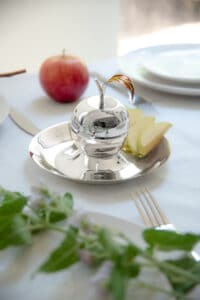
The most popular Judaica Rosh Hashanah gift is either a
traditional silver honey dish or a modern anodized aluminum honey dish. Ornate, silver filigree honey spoons, or modern art deco honey spoons are amazing small gifts.
For our entire collection of beautiful Rosh Hashanah products, please click here.
Sukkot
Hebrew Name: סֻכּוֹת
Sukkot 2022: 15th Tishrei- October 9th
What is Sukkot Holiday?
Sukkot is a well known Jewish holiday that is a special favorite with kids. The main reason for its popularity is for the chance to build a sukkah and eat outdoors. Sukkot is the plural of the Hebrew word for a booth or tabernacle. A sukkah is an improvised shelter that commemorates the temporary shelters that ancient Jewish farmers built during the harvests. They needed to camp close to their fields and take advantage of every hour of daylight. Sukkot also marks the 40 years the Israelites spent wandering after the exodus from Egypt.
What do you use to build a sukkah?
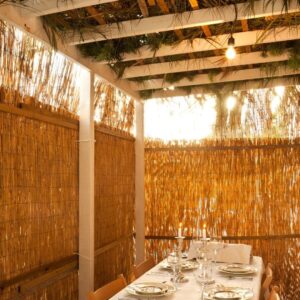
It’s customary to decorate the inside of a Sukkah with the four plants. Interpretations vary, but the Talmud defines the four Sukkot plants as etrog, lulav, hadass and aravah. Etrog (citron fruit) is an important part of the Sukkot rituals. Many families love to bring out a special silver etrog box for Sukkot and follow the tradition of wrapping etrog in flax fibers and placing it in the etrog box. The added benefit is that the discarded etrog can be made into delicious etrog jam.
Recommended Sukkot Gifts
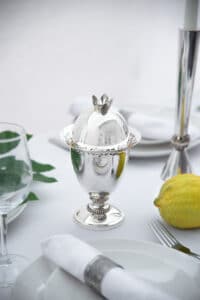
Recommended Judaica gifts for Sukkot 2022 include:
- Silver Etrog Box
- Lulav Case
- Israeli Art
- Kiddush Cups Set
- Handmade Tallit from Israel
If you’re building a sukkot this year, or even just celebrating the holiday indoors, a handmade silver etrog box from Jerusalem is an amazing Sukkot gift. It may only be used once a year, but it is also a beautiful ornament.
For our entire Sukkot collection, please click here
Hanukkah
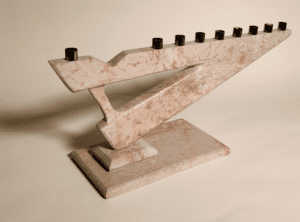
Hanukkah 2022: 25th Kislev- December 18th
What Is Hanukkah?
Hanukkah is the Jewish festival of lights and is a welcome winter holiday that sometimes falls close to Christmas. Hanukkah is celebrated for the falling of the Jewish Second Temple over two thousand years ago. The Hanukkah holiday lasts eight days and eight nights Because of the oil miracle that happened after the destruction of the Second Temple and is another big favorite with kids. Children love the Hanukkah ritual of candle lighting, and the Hanukkah treats of sufganiyot or jam donuts – and sometimes hanukkah gelt (small gifts of money).
What Is a Traditional Hanukkah gift?
Another wonderful Hanukkah tradition is dreidels, or old fashioned Jewish spinning tops. The traditional children’s toys have been given as hanukkah gifts for centuries and their actual origin may go back to the time of the Selucids and the Maccabean revolt that inspired the Hanukkah festival. Simple dreidels were carved from wood, or cobbled together from any available materials. They were decorated with the Hebrew letters (נגהש). Ornate Judaica dreidels can be handcrafted with stunning silver filigree patterns, but are still functional toys.
Hanukkah is best known for its special menorahs or hanukkiahs. The nine branch menorah is relit each night, with an extra candle added each time. Lighting the Hanukkah candles is a fun family event that usually involves donuts, latkes and other holiday foods. Some American Jews still celebrate Hanukkah with a dinner of roast goose. Hanukkah is very much a winter holiday and gathering around the candlelight of the menorah on a cold dark night is a lot of fun.
Recommended Hanukkah Gifts
Recommended Judaica gifts for Hanukkah 2022 include:
We hope you’ll have the chance to attend a Hanukkah candle lighting this year. A handmade silver nine branch hanukkiah menorah is a special once in a lifetime gift. There are also miniature flat design hanukkiahs and dreidels that make great small gifts.
For our entire Hanukkah products collection, please Click here
Purim
Hebrew Name: פּוּרִים
Purim 2022: 14th or 15th Adar – March 16th
What is the history of Purim?
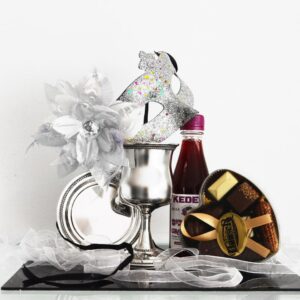
How to Celebrate Purim with Kids?
Purim is very much a kids holiday and is also party time for adults. If Purim falls later in March, the weather in Israel has already warmed up and turned sunny. There’s usually a carnival atmosphere with fancy dress parties and fireworks. It’s also traditional to drink wine at Purim and if the holiday is on a weekend, the bars and pubs are usually packed.
A more sober – but also enjoyable – Purim tradition is bringing out the Scrolls and reading the Book of Esther – the Megillah. Esther was the heroine who helped to save her people and Purim celebrates her cunning and bravery. Purim is also a time for charity and giving to the poor. The practice evolved into the tradition of mishloach manot – giving baskets of appetizing food and other delicacies as Purim gifts.
Recommended Purim Gifts
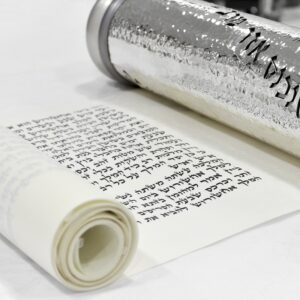
Recommended Judaica gifts for Purim 2022 include:
- Handmade Megillah
- Mishloach Manot from Jerusalem
- Megillah Case
- Kiddush Set
- Wine Holder
If you’re planning to party this Purim, any kind of wine set, liquor set, or wine holder will match the Purim vibe nicely. If your outlook is a little more serious – or you’re looking for a special gift – a handmade silver Megillah box, or a handwritten parchment scroll could be the perfect Purim present.
For our entire Purim collection, please click here
